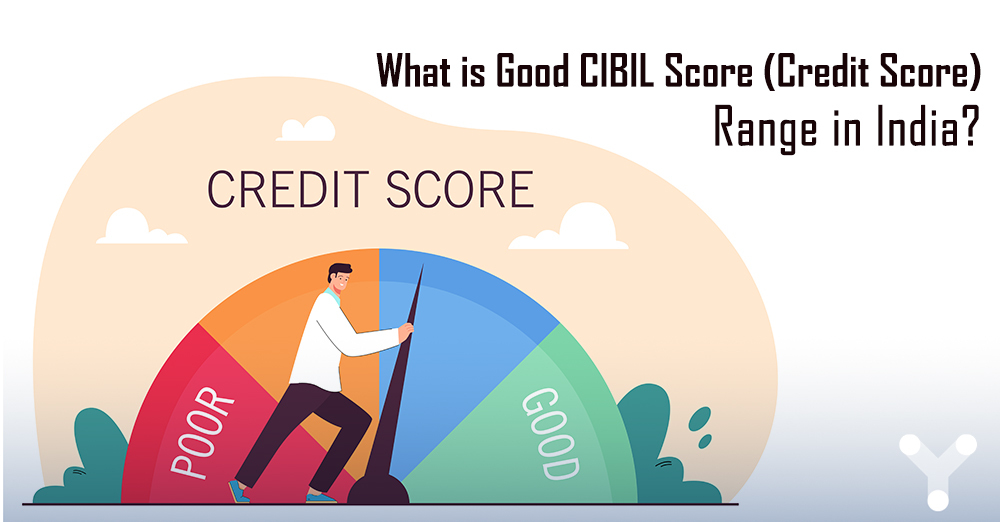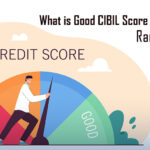

CIBIL Score in India 2025: What’s Good and How to Improve
In India, your CIBIL score can make or break your financial dreams. Whether you’re applying for a home loan, personal loan, or even a credit card — this one number plays a big role in how lenders view you.
But what exactly is a CIBIL score? What’s considered a good score in 2025? And more importantly — how can you improve your CIBIL score quickly?
Let’s break it all down in simple, no-jargon language — and help you build the financial trust banks love.
What is a CIBIL Score?
Your CIBIL score is a 3-digit number between 300 and 900, calculated by the Credit Information Bureau of India Limited (CIBIL). It represents your creditworthiness — or how reliable you are when it comes to repaying loans or credit card bills.
This score is based on your past repayment behavior, credit usage, and more. A high score means you’re low risk for banks. A low score could mean possible rejection or higher interest.
What is a Good CIBIL Score in India (2025)?
| CIBIL Score Range | Category | Loan Approval Chances |
|---|---|---|
| 800 – 900 | Excellent | Very High (lowest interest rates) |
| 750 – 799 | Good | High (quick approval, good offers) |
| 700 – 749 | Fair | Moderate (possible higher rates) |
| 600 – 699 | Low | Low (risk of rejection) |
| Below 600 | Poor | Very Low (often declined) |
A score of 750 or above is ideal for fast approvals and attractive interest rates across home, personal, and business loans.
Why is CIBIL Score Important?
A good CIBIL score affects multiple parts of your financial journey:
- Fast home loan or car loan approvals
- Low-interest personal loans
- Premium credit cards with higher limits
- Better deals on EMIs and loan terms
- Eligibility for zero-cost EMIs and co-branded cards
Today, many employers, landlords, and even fintech lenders in India check your credit behavior before making decisions.
What Affects Your CIBIL Score?
Payment History
Missing or delaying credit card bills or EMIs is the biggest reason for low scores. Even one late payment can reduce your score significantly.
Credit Utilization Ratio
If your card limit is ₹1,00,000 and you’re regularly spending ₹80,000, that’s a red flag. Stay below 30% usage.
Type of Credit
Having a mix of secured (home/car loans) and unsecured loans (credit cards, personal loans) is viewed positively.
Length of Credit History
Older credit accounts boost your credibility. Avoid closing your oldest credit card.
Credit Inquiries
Every time you apply for a loan or card, a lender checks your score. Too many checks = lower score.
How to Check Your CIBIL Score Free in 2025
You don’t need to pay to check your score. The best platforms in India to check your credit score include:
- Google Pay – Provides free credit score checks with detailed summaries
- PhonePe – Easy credit health monitoring within the app
- Tread – Reliable financial tracking with personalized CIBIL insights
- CRED – Trusted app for real-time score updates and tracking credit card payments
- Jupiter – Simple, clean UI with free credit score insights and financial wellness tools
- CIBIL.com – Official site offering one free report per year
All of these apps are trusted and safe, offering real-time credit updates and smart recommendations.
How to Improve Your CIBIL Score Quickly in India
Pay EMIs and Credit Card Bills on Time
Use auto-pay, reminders, or payment apps. Never delay payments — even by a day.
Keep Credit Card Usage Low
Don’t max out your card. Keep usage under 30–40% of your total limit.
Don’t Apply for Too Many Loans
Avoid making back-to-back applications for credit cards or personal loans.
Increase Credit Limit (But Spend Less)
Request higher limits to improve your utilization ratio — but don’t increase spending.
Don’t Close Old Credit Cards
Your credit history’s age boosts your score. Keep old cards active even with minimal use.
Settle Past Dues
If any loan or card was marked “settled” or “written off”, clear the dues and request the lender to mark it as “closed” in your credit report.
Common Credit Mistakes to Avoid
- Making only the “minimum due” payments on credit cards
- Taking too many small BNPL (Buy Now Pay Later) loans
- Ignoring credit card usage and due dates
- Closing all credit cards thinking it improves credit
- Using multiple loan apps without understanding the impact
Bonus Tips: Financial Habits That Boost Your Score
Develop healthy money habits using apps that simplify your financial life:
- Use Tread or Jupiter to track EMIs and savings goals
- Use Google Pay or PhonePe to schedule timely payments
- Use CRED to monitor credit card due dates, score changes, and payment history
- Review your report quarterly and dispute any errors
The better your financial behaviour, the higher your score climbs.
Final Thoughts: Build Your Credit Power
Your CIBIL score isn’t just a number — it’s your financial reputation. In a world where money moves fast, your score decides how quickly and affordably you can access it.
To summarize:
- Check your score monthly using Google Pay, CRED, or Tread
- Keep your credit usage low and payments on time
- Maintain old credit lines
- Don’t overapply for credit
- Fix your score now to unlock better rates and opportunities in 2025
Start building your score today. Because when opportunity knocks — a strong credit score ensures the door opens.
Written by Badri | MoneyScope360.com
Bringing money clarity to everyday life.









2 comments